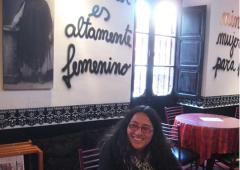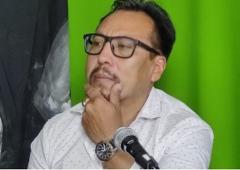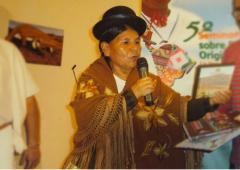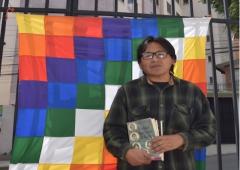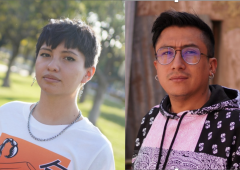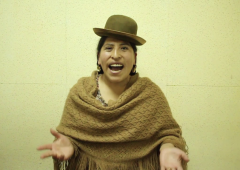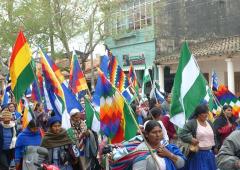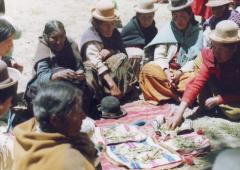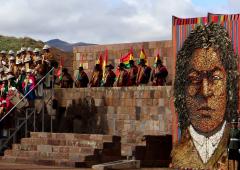Articles by: Benjamin Dangl
Feminist organizer Julieta Ojeda talks about her grassroots work in Bolivia for abortion access and empowering feminist struggles from below.
Journalist José Aramayo discusses how radio plays a central role in the political and social life of Bolivia and its campesino movements.
On the shores of Lake Titicaca, the Aymara journalist has spent over 50 years informing and strengthening community through the airwaves.
Indigenous thinker and writer Wilmer Machaca talks about the political vision behind Jichha, a digital space for exploring and building Indianist social change across the Andes.
The editors of the feminist media outlet speak about making grassroots journalism that reflects the realities and social movements of the country.
The Aymara radio broadcaster and YouTuber produces feminist media in Bolivia to amplify the struggles of women workers and promote solidarity and mutual aid.
The work of this Bolivian women’s group illustrates the long arc of Indigenous resistance to colonialism.
Bolivian human rights lawyer David Inca Apaza on the demands of the protests in November and the brutality of the government's response.
In this adapted excerpt from his new book, Benjamin Dangl delves into the ways oral history, collective memory, and grassroots historical research have played a key role in Bolivian Indigenous movements.
The following excerpt from the new book, The Five Hundred Year Rebellion: Indigenous Movements and the Decolonization of History in Bolivia, looks at the roots, rise, and presidency of Evo Morales, who is likely to win a fourth term in office in Bolivia’s October 20 general election.
Worldwide condemnation has followed the coup that unseated President Manuel Zelaya of Honduras on Sunday, June 28. Nation-wide mobilizations and a general strike demanding that Zelaya be returned to power are growing in spite of increased military repression. One protester outside the government palace in Honduras told reporters that if Roberto Micheletti, the leader installed by the coup, wants to enter the palace, "he had better do so by air" because if he goes by land "we will stop him."
El Alto-based hip-hop artist Abraham Bojorquez died early in the morning on Wednesday, May 20 in El Alto, Bolivia. He was killed when a bus hit him as he walking home. Abraham, 26 years old, was a member of the popular hip-hop group Ukamau y Ké. His music blended ancient Andean folk styles and new hip-hop beats with lyrics about revolution and social change.

